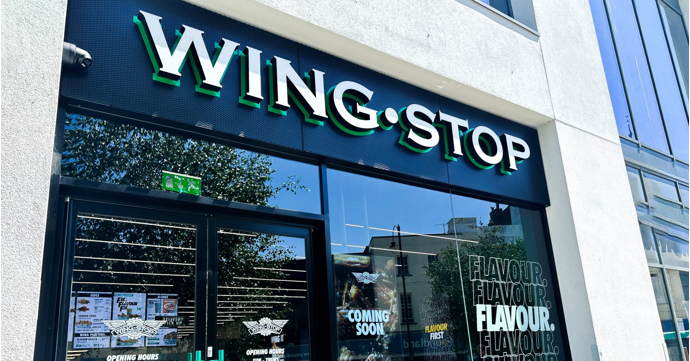Launched by the Soil Association, Organic September is a whole month dedicated to championing living an organic lifestyle and the positive impact that choosing organic has on people and the planet.
SoGlos speaks to Greg Pilley, the founder of Gloucestershire's first all-organic brewery, about why September is the ideal time to embrace an organic lifestyle — and what Stroud Brewery is doing to mark Organic September 2023.
First of all, what is Organic September?
The organic sector has had quite a job marketing itself. It's not always been a case of meeting an existing market, but creating a market. There was never a market for it 20 years ago, so we've have had to create that by educating consumers.
Now there is a well-established organic market, we're doing a good job of meeting demand, but there's still quite a long way to go before the average consumer really understands what organic is and the benefits of it.
Organic September is an opportunity for the whole sector — not just the Soil Association, but a number of partners, producers, retailers, everyone who champions organic — to shout about it and why it's so good.
There's a theme every year, this year's is 50 years of loving organic and organic as climate action — and one of the things they're doing a bit differently this year is promoting the hospitality industry.
In the past, it's always been about big retail, so we've been putting the pressure on as hospitality does a lot for the organic sector and it's at hospitality venues that a lot of consumers will see these products.
The Soil Association has a catering marque which offers a star rating based on how much organic produce is served — so the more organic produce, the more stars — but alcoholic drinks weren't included. This is the first year that beer will now count towards that quota, so it's something we're considering for Stroud Brewery and we're encouraging the pub and restaurant customers we supply to embrace this too, to show that they serve organic on their menus.
Part of this is measuring and qualifying organic sales and we've just put in a till system where we can record what's local and what's organic at the point of sale and will report on this. Stroud Brewery has a policy to favour organic and/or local wherever possible. It's important for the local economy and for us as a brewery, favouring organic is the best way to produce food and drink that's good for the environment and biodiversity.
But it's not just about fresh produce, it goes into cosmetics and other things as well.
Why is it important to raise awareness of the benefits of organic through things like Organic September?
We've touched on this before, but we know that there's around 50 per cent more bees and 70 per cent more biodiversity on organic farms. In the UK, 12,000 tonnes of organic barley is turned into organic malt for brewing, compared to 1.8 million tonnes for conventional brewing — if everyone switched just to organic barley for brewing that would be a colossal change for biodiversity.
Then if you extrapolate that for, say, dairy, vegetables, all the other things we eat, imagine the uplift in bees and biodiversity that we'd see.
Water quality is also very important. We've been hearing on the news recently about water authorities dumping into rivers and the high nutrification levels in rivers. One of the biggest issues is phosphate and nitrate from agricultural run-off — the biggest cost for water authorities is cleaning the waterways. In some areas, water authorities are actually paying farmers a subsidy to convert to organic, as it's cheaper to pay the farmers a subsidy than to clean the waterways.
But the problem with this is that the polluter is rewarded. Existing organic farms don't get the subsidy. It's similar with carbon credits. If you farm poorly and deplete the soil, you have more capacity to re-carbonise and get more carbon credits than an existing organic farmer who farms well and is almost at capacity for carbon in the soil, so they won't get any support.
Organic farming is already delivering good things and doesn't require any of this outside input. It's not subsidised, the premium is built in and that is paying for farming methods that don't degrade the environment, don't cost biodiversity, don't pollute the water and produce food which is healthy.
These hidden costs of conventional farming are subsidised by these outside schemes which aren't directly linked, so it's important for consumers to support organic farmers. The premium you pay for organic is paying for all of those benefits.
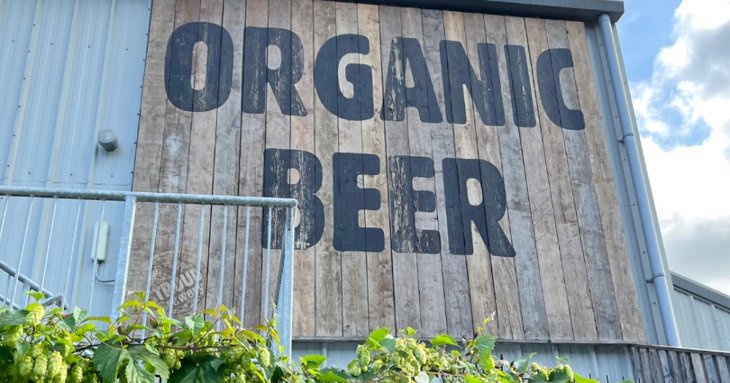
What is Stroud Brewery doing to mark Organic September in 2023?
Last year we organised an organic tap takeover, so we put beers from organic breweries all over the UK on our bar in solidarity with our other organic brewers.
Although we're competing with each other, we're also competing with conventional brewers making tasty beer at less of a cost. If the customer was more aware of these issues and more breweries were committed to sustainable farming, it would be a much more level playing field that's better for people and the environment.
This year we're building on that and having a standalone mini organic beer festival on Saturday 23 and Sunday 24 September, so an evolution on the theme! We'll have a DJ and live music as part of that. The date coincides with Cask Ale Week as well, so it's a double whammy.
Next year we're hoping to organise a big beer festival in Bristol to go hand in hand with this new hospitality initiative and we're trying to encourage some of the bigger pub chains to embrace Organic September and get licensees serving an organic beer throughout Organic September.
We've got some interest from Fullers and from some smaller pubs already, so Stroud Brewery would act as a consolidator for the breweries and send the beers out to pubs on pallets — we're hoping to make it a national event!
Stroud Brewery has a great tradition of creating seasonal beers — what are you brewing this September?
Our next seasonal beer is called Brewer's Garden. It was one that was named by my first employee brewer, who made a beer from the two hop plants I was given by my partner when I started the brewery.
We didn't have a Brewer's Garden of our own, so we've now got around 100 local people in our Hop Club growing plants in their own gardens and on Saturday 9 September 2023 we're hosting our picking day, where the community comes to pick the hops and listen to some jazz before putting everything in to brew around lunchtime.
This one is actually the only beer we brew which isn't certified organic, as the hops are grown by people all over the county — but all of the other ingredients are organic and we trust the people that are growing the hops!
We're also looking forward to brewing a Christmas beer which is going to be a white stout, which is a bit of an oxymoron! It'll taste and feel like a stout with creaminess and oats, it'll be bitter like a stout and it'll have that roastiness, but without putting in the roasted barley, so it won't have the dark colour. It'll also include cacao nibs, coffee beans and vanilla, so the brewers are really excited about that.
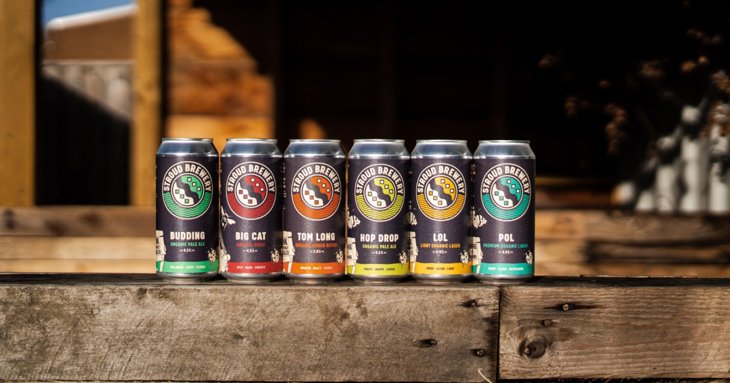
How can people embrace an organic lifestyle beyond special months like Organic September?
Part of it is understanding organic. One of the main reasons people buy organic is for the health benefits as there's no pesticides, no herbicides, no artificial chemicals and it's better for biodiversity. Recognising organic has these wider benefits and the premium you're paying is to support those things is the first step.
One of the barriers in place is the cost, which is why some people say they can't embrace an organic lifestyle, but you can incorporate a high proportion of organic products into your life without it being too expensive.
One of these is dairy products. Organic dairy is so ubiquitous now it's almost the same price as conventional milk and is readily available. There's brands like Yeo Valley and Rachel's which are really high quality and available in most supermarkets. Organic milk is on every shelf, along with a great selection of organic cheeses.
The next thing is eggs and indeed chickens. Anyone who cares about animal welfare shouldn't really be eating chickens housed in poor conditions. Even if you don't eat chicken, then go for organic eggs. Organic standards include high standards of animal welfare.
My main encouragement would be if you're buying anything derived from an animal, look to organic for the welfare standards.
Organic veg does come with a high premium in supermarkets, but there are opportunities to buy direct from farms and farmers markets, where you don't need to pay that high premium — and if you can, grow a bit of your own in your garden, there are lots of easy things you can do there to supplement your usual shop.
For beer, for our product, it's about recognising that beer is made from an agricultural product — barley and hops grown in our countryside and our landscape. If you want to do the best for the countryside outside of your window and around the places you drink, the best thing you can do is to drink a beer that's made from ingredients that care for the environment — looking after soil health, water health and biodiversity.
As a brewery, our biggest spend is our ingredients and by far that's buying barley. We've just done a carbon footprint, the carbon footprint of organic barley is 20 per cent lower than conventional barley, so the biggest impact we can have is using organic ingredients.
And that's just carbon, that doesn't take into account biodiversity or water, that's just the carbon benefit. We talk a lot about regenerative agriculture, which organic farming is — it's capturing carbon, working with the natural environment — so this is what we think all breweries should be doing.
We're an early adopter and we need support from our consumers, not just in September but all year round.
If someone wants to try an organic beer this September, what would you recommend?
Easy Peasy is a great beer, it's a hoppy light beer at 2.6 per cent, so if you want to start your evening off gently, I would recommend trying that one.
We keep getting asked for alcohol-free beers, but it's very difficult to do well with the resources that we have, so we decided to do the lowest alcohol beer we could that's still really tasty.
It has organic lemon peel and coriander in it, as a bit of subliminal flavour, and the response has been fantastic. It has reasonable body and mouthfeel, it's really hoppy in a new age craft style way, but it's low alcohol.
Easy Peasy is one of our keg products and it's also available in cans. It has a really nice label, too. It says: 'When life gives us organic lemons, we make a light pale ale man. Our refreshing ale invites you to chill out when the sun shines, because life is good, take on an abundance mindset. When life gets sour, practice the attitude of gratitude. Enjoy the little things, like balloons. They cost more now, but that's inflation for you.'
Here at Stroud Brewery we have made a commitment to organic, so as well as our beer being organic, all our soft drinks, whiskies, spirits and wines are organic. Our tea, coffee, hot chocolate, milk are all organic wherever possible, so if you want to try a selection of organic drinks then please do come and visit the bar.


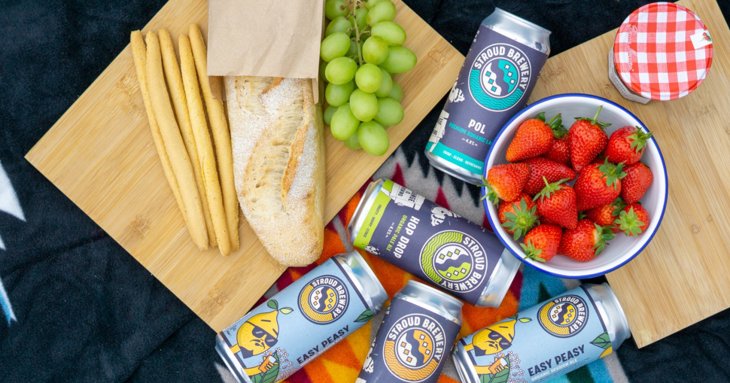
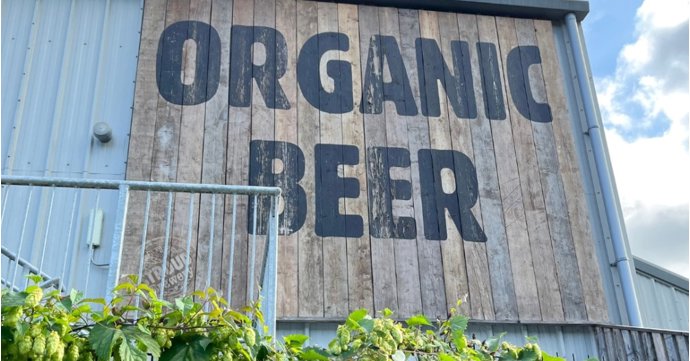
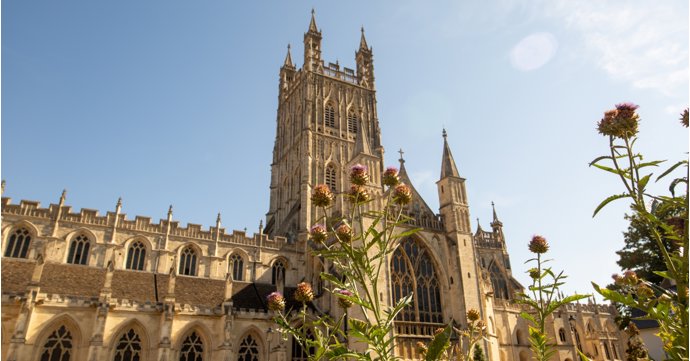
.jpg?width=690&height=361&rmode=pad&bgcolor=ffffff&quality=85)




